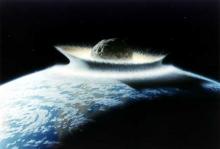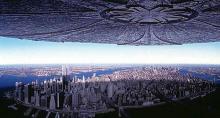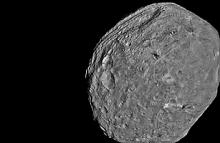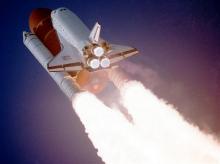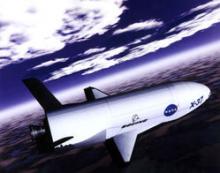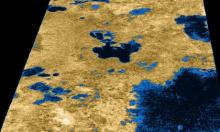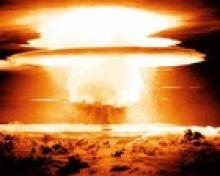Invading Aliens Will Wipe Out Planet To Punish Humanity for Global Warming
A recent report released by a handful of scientists was based on a "scenario analysis" of an alien invasion. In this scenario, it looks at the likelihood that aliens would "wipe out" the human race because of our hand in global warming... just as plausible a reason as any other, I suppose. After all, there have been a lot of alien invasion movies where the motive wasn't know, and now we can point to an easy culprit: climate change. In fact, it's the very fact our rapidly expanding populations that would incite the aliens to this carnage. It's remarkable, as Megan McArdle of Atlantic Monthly pointed out, "how often the aliens in science fiction just happen to be preoccupied with the exact same political issues that obsessed intellectuals of the era when the fiction was written."
Dawn Probe: First Look at Distant Bodies
There are two high-profile NASA probes in the big black, and one of them has just made an important stop. Having successfully entered the orbit of the second largest asteroid in our solar system, the Dawn Probe is settling in to begin mapping the asteroid and answering some questions about one of the largest "breeders" of Earth-bound meteorites of which we know. As reported on TIME.com, settling any space vessel into a planetary object's orbit is a tricky maneuver and anything but guaranteed. When the Dawn Probe completed it's entrance and settled into the asteroid's gravity field, scientists celebrated, and then got down to the business of making discoveries.
R.I.P Space Shuttle Program 1981 - 2011
With the controversial shut-down of NASA's 30-year old space shuttle program it is undoubtedly the end of an era. Some call it indicative of the U.S. "brain-drain"; a process of slowly losing our capacity for technological innovation and a sign that we will be passed by as leaders of progress. Others call it necessary to open the door to more intensified and entrepreneurial innovation by private industry. Whatever your take, there's no doubt the the closing of the space shuttle program will be a hard transition for many that grew up, like myself, watching those magnificent shuttles taking off and talking about the heritage of pioneering that is our national legacy, both in space and on terra firma.
Microscopic Bugs Survive in Space
Boeing in Space? Obama Adopts a Conservative Approach
Robot Boat to Sail the Seas of Titan
As a writer, I can’t get enough of science stories that both fascinate intellectually and stir the creative imagination. When I learned there were diamond oceans with solid diamond icebergs on Neptune and Uranus, my brain went crazy at trying to imagine them. It seems the universe is filled to the brim with scenes whose beauty we can only imagine. The scientific study of planets other than our own not only helps us understand the physical universe, it brings new and strange ideas to the collective human imagination.
Ancient Nukes on Mars, Earth
Kobaïa and the Magma Conundrum
Kobaïan? Good question. It’s a language created by Magma drummer Christian Vander and assigned to the fictitious story he constructed over his band’s first few albums. There’s a bit about escaping from Earth only to return and be chased off again. But that’s all nonsensical framing. And since we can’t understand the lyrics without a sheet of proper translation, it’s utterly moot.
We can hear music, though.
